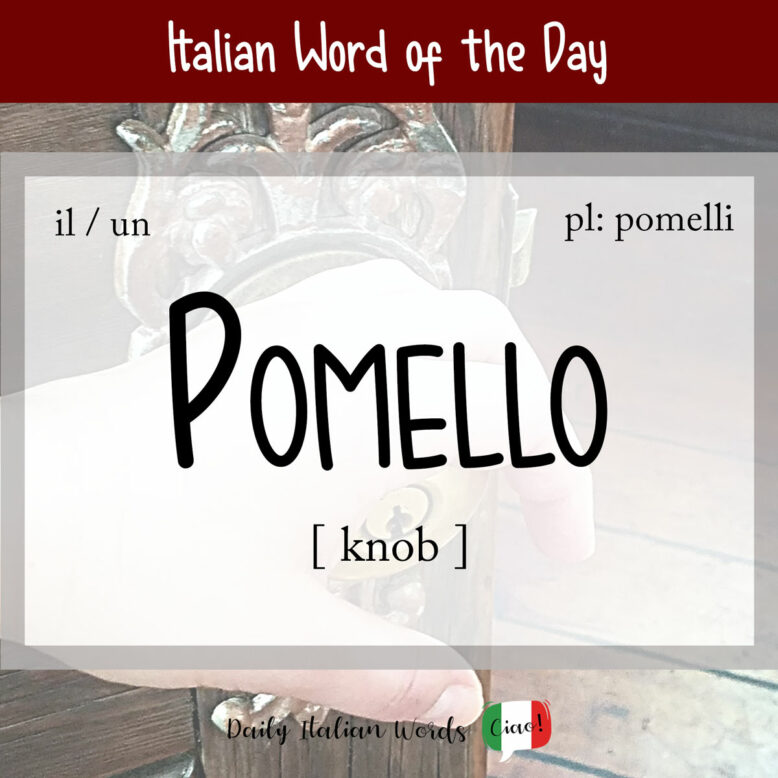Today, we’re going to delve into the intriguing world of a little Italian word that plays a significant rule in our everyday lives: pomello (knob / pommel). After all, we wouldn’t be able to open many doors without it!

Pomello is the diminutive form of pomo which, along with the far more commonly used mela, refers to the humble apple, or in literature, any fruit growing on a tree that recalls the apple due to its spherical shape. In fact, it is the same pomo that appears in the word pomodoro (tomato), quite literally “apple of gold”.
Pomello is a masculine noun, so it takes the following definite and indefinite articles:
- il pomello = the knob
- i pomelli = the knobs
- un pomello = a knob
- (dei) pomelli = (some) knobs
Sto girando il pomello della porta.
I’m turning the doorknob.

Although pomello most frequently refers to a doorknob or ornamental knobs attached to furniture, its use also extends to any rounded lump or ball found at the end of something, such as a pomello del cambio (gear stick) in a car or pomello per bastone da passeggio (handle of a walking stick).

Note that, as in English, a pomello differs from a handle (maniglia) in that the pomello of a door must be rotated, whereas the handle must be pushed down.
Pomello has yet another meaning which is cheekbone, making it a synonym for zigomo. This is most likely due to the protruding nature of the bone.
Lo riconoscerai subito! Ha il naso piuttosto grande e i pomelli sporgenti.
You will recognise him right away! He has a rather large nose and protruding cheekbones.
Heather Broster is a graduate with honours in linguistics from the University of Western Ontario. She is an aspiring polyglot, proficient in English and Italian, as well as Japanese, Welsh, and French to varying degrees of fluency. Originally from Toronto, Heather has resided in various countries, notably Italy for a period of six years. Her primary focus lies in the fields of language acquisition, education, and bilingual instruction.


